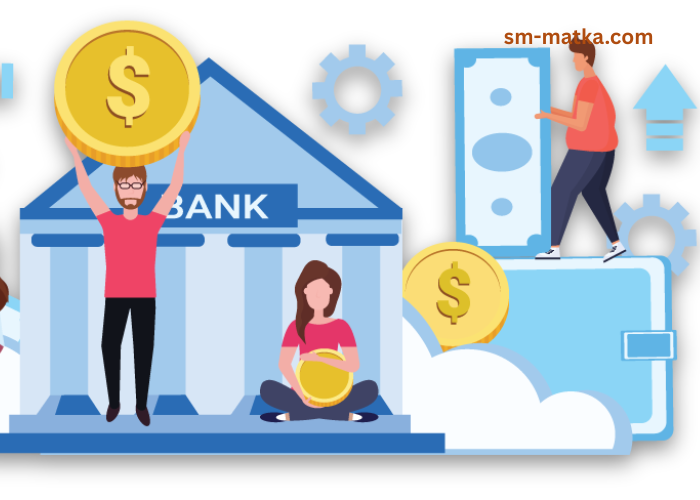
Achieving financial stability is a goal that resonates with individuals across all walks of life. Among the many factors that contribute to this goal, credit scores hold a pivotal place. A good credit score not only opens doors to financial opportunities but also lays the foundation for long-term economic well-being. This guide dives deep into the nuances of credit scores, empowering you with the knowledge to master them for a stable financial future.
What is a Credit Score?
A credit score is a numerical representation of your creditworthiness. It is derived from your credit history and helps lenders assess the risk of lending money to you. Credit scores typically range from 300 to 850, with higher scores indicating better credit health. The primary scoring models used are FICO® and VantageScore®, both of which consider factors like payment history, credit utilization, and credit mix.
Importance of Credit Scores
Your credit score impacts various aspects of your financial life:
- Loan Approvals: A higher score increases the likelihood of loan approvals and better interest rates.
- Credit Card Eligibility: Premium credit cards often require excellent credit scores.
- Employment Opportunities: Some employers check credit scores during the hiring process.
- Rental Agreements: Landlords may review your credit score before approving tenancy.
Understanding Credit Score Ranges
Understanding where your score falls on the scale can help you gauge your financial standing:
| Score Range | Rating | Impact |
|---|---|---|
| 300 – 579 | Poor | Limited credit options |
| 580 – 669 | Fair | Higher interest rates |
| 670 – 739 | Good | Standard credit terms |
| 740 – 799 | Very Good | Favorable terms |
| 800 – 850 | Excellent | Best rates and offers |
Factors Influencing Your Credit Score
1. Payment History
Your payment history accounts for 35% of your credit score. Consistently paying bills on time is crucial.
2. Credit Utilization Ratio
This ratio measures how much of your available credit you are using. Ideally, keep it below 30% to maintain a healthy score.
3. Length of Credit History
The longer your credit history, the better it is for your score. This accounts for 15% of the overall calculation.
4. Credit Mix
Having a mix of credit types—such as credit cards, mortgages, and auto loans—positively affects your score. It contributes 10% to your score.
5. New Credit Inquiries
Frequent hard inquiries can lower your score. Limit the number of new credit applications to maintain a stable score.
Steps to Improve Your Credit Score
1. Review Your Credit Reports
Obtain free credit reports annually from agencies like Experian, Equifax, and TransUnion. Check for errors or inaccuracies that may be dragging your score down.
2. Pay Bills on Time
Set up reminders or auto-pay options to ensure you never miss a payment.
3. Reduce Outstanding Debt
Pay down high balances on credit cards and loans to lower your credit utilization ratio.
4. Avoid Opening Too Many Accounts
While diversifying your credit can be beneficial, avoid applying for multiple accounts in a short period.
5. Keep Old Accounts Open
Closing old accounts can shorten your credit history. If possible, keep them open and active.
Benefits of a High Credit Score
1. Lower Interest Rates
With a higher score, lenders are more likely to offer you loans at lower interest rates, saving you money in the long run.
2. Better Loan Terms
You’re likely to receive more favorable terms, such as higher loan amounts and flexible repayment schedules.
3. Improved Negotiating Power
A high credit score puts you in a stronger position to negotiate better deals with lenders and service providers.
4. Financial Peace of Mind
Knowing you have access to credit when needed provides a sense of security.
Common Credit Score Myths
Myth 1: Checking Your Credit Score Hurts It
Fact: Checking your own credit score is considered a soft inquiry and does not affect your score.
Myth 2: Carrying a Balance Boosts Your Score
Fact: Paying off your balance in full each month is better for your score and financial health.
Myth 3: Closing Old Accounts Improves Your Score
Fact: Closing accounts can shorten your credit history, potentially lowering your score.
Myth 4: You Only Have One Credit Score
Fact: You have multiple scores depending on the scoring model and credit bureau.
Building Credit from Scratch
If you’re new to credit, here are steps to build a solid foundation:
1. Apply for a Secured Credit Card
A secured credit card requires a deposit and is a great starting point for building credit.
2. Become an Authorized User
Ask a family member or friend with good credit to add you as an authorized user on their account.
3. Take Out a Credit-Builder Loan
These loans are designed to help you establish credit by making small, manageable payments.
4. Use Your Credit Responsibly
Ensure you make payments on time and keep your utilization low.
Maintaining Good Credit Habits
1. Monitor Your Credit Regularly
Use credit monitoring tools to stay informed about changes to your credit profile.
2. Set Financial Goals
Plan and stick to financial goals to avoid overextending yourself.
3. Avoid Co-Signing Loans
Co-signing can affect your credit if the primary borrower defaults.
4. Educate Yourself
Stay informed about credit and financial trends to make sound decisions.
Credit Score and Financial Stability
A strong credit score contributes significantly to financial stability. It reduces financial stress, increases access to credit, and creates opportunities for wealth building. Whether it’s securing a mortgage, purchasing a car, or starting a business, a good credit score serves as a cornerstone for achieving these milestones.
Tools to Help Manage Your Credit
1. Credit Monitoring Apps
Applications like Credit Karma and Experian provide real-time updates and insights.
2. Budgeting Tools
Apps like Mint and YNAB (You Need A Budget) help you manage finances and ensure timely payments.
3. Debt Payoff Calculators
These tools assist in strategizing debt repayment for maximum efficiency.
Conclusion
Mastering your credit score is an ongoing journey that requires discipline and awareness. By understanding how credit scores work and implementing best practices, you can unlock financial opportunities and pave the way for a stable and prosperous future. Start today by reviewing your credit report, making timely payments, and adopting smart financial habits. A better credit score is not just a number—it’s your gateway to financial freedom.



